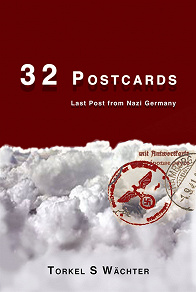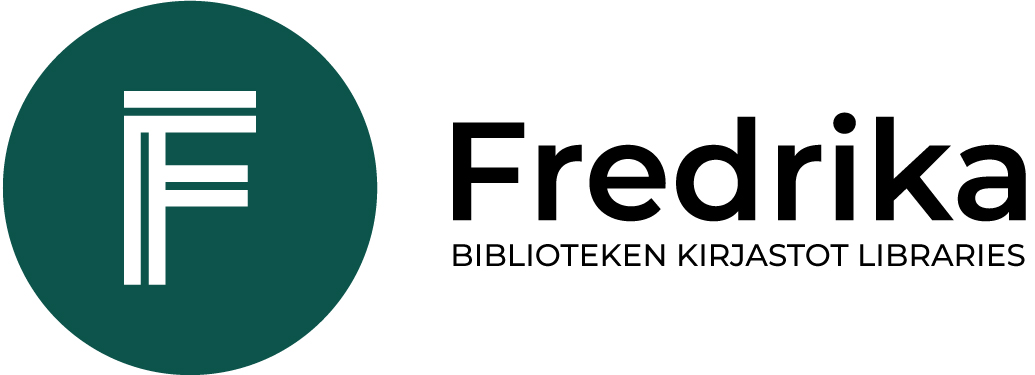
Isbn:
978-91-8779-901-3
Förlag: Vindhus förlag
Kategori:
Memoarer & Biografier Historia Engelskspråkiga
Tillgänglig sedan: april 2015
Förlag: Vindhus förlag
Kategori:
Memoarer & Biografier Historia Engelskspråkiga
Tillgänglig sedan: april 2015
E-bok
32 Postcards - Last Post from Nazi Germany
32 rediscovered authentic postcards sent out from Nazi Germany unfold the dramatic fate of a German Jewish family before deportation. From the outbreak of the Second World War to the Japanese attack on Pearl Harbour, these postcards tell the story of the end of two love affairs, the one between Liesbeth and Walter, and the one between Germany and its Jews.
Novelist Torkel S Wächter:
“My father was a German Jew. He never denied the fact, but he did not talk much about it. He was more interested in the present and the future than in the past. When the war was over, he drew a line under the past, and with great resilience he built up a new life in Sweden. He promised faithfully that his children would never have to hear a single word in German. When he died, in 1983, he left behind some packing cases that were stored in the attic.
Some years ago I ventured to open the boxes my father left behind. They were filled with diaries, letters, articles and other documents, most of which was written in Sütterlin, old German handwriting, and impossible for me to decipher. In a wooden cigar box there were photographs of people unknown to me, but I recognised that a woman depicted on some of the photographs had the exact same eyes as I have, and I realised that she must be my grandmother.
Among the material my father left behind were letters written by somebody who called himself ‘Walter’. These letters were sent from the concentration camp Fuhlsbüttel outside Hamburg. I also found hundreds of letters written by my grandparents and sent to this person, ‘Walter’, who was serving a three-year sentence for preparation for high treason. It took some time for me to realise that the ‘Walter’ referred to as the addressee and owner of all the diaries, essay collections, documents and letters was in fact my very own deceased father who had renounced his old Germanic name and was known to me as Michaël.
In one of the packing cases was a plastic bag containing 32 yellowed, handwritten 5.5 x 3.5 inch postcards, stamped with a red postal stamp with the imperial German eagle and a swastika, making it clear they were posted in Nazi Germany during the Second World War. It turned out these were the last postcards my grandparents sent out of Nazi Germany to their son, before they were deported in 1941.”
Acclaim for Torkel S Wächter’s 32 Postcards:
“The way in which the postcards document and yet simultaneously personalize the unfolding of history is remarkable, and affords a distinctive and profound insight into the period. The visual display is also part of the exceptional experience – the handwriting, the signature, are part of the visual remnant of living beings calling out to be remembered and preserved.”
Barbara Lerner Spectre, Founding Director of Paideia
“I am forever thankful to you for loving enough, being proud enough and caring enough to share these precious memories with the rest of us. ”My father and Grandfather Friedman would salute you from their graves.”
Jeanie Parrott, USA
“An impressive example.”
Henriette Kolb, Jewish Museum Berlin
“It’s very difficult to put words to my feelings at this point. What a creative way to convey the gamut of emotions German Jews under the Nazis were subjected to. I applaud and admire you.”
James Sauer, California, USA
“European-Jewish history in the smallest format, tailor-made for the 21st century – an extraordinary project, indeed!”
Roland Detsch, Goethe Institute
Novelist Torkel S Wächter:
“My father was a German Jew. He never denied the fact, but he did not talk much about it. He was more interested in the present and the future than in the past. When the war was over, he drew a line under the past, and with great resilience he built up a new life in Sweden. He promised faithfully that his children would never have to hear a single word in German. When he died, in 1983, he left behind some packing cases that were stored in the attic.
Some years ago I ventured to open the boxes my father left behind. They were filled with diaries, letters, articles and other documents, most of which was written in Sütterlin, old German handwriting, and impossible for me to decipher. In a wooden cigar box there were photographs of people unknown to me, but I recognised that a woman depicted on some of the photographs had the exact same eyes as I have, and I realised that she must be my grandmother.
Among the material my father left behind were letters written by somebody who called himself ‘Walter’. These letters were sent from the concentration camp Fuhlsbüttel outside Hamburg. I also found hundreds of letters written by my grandparents and sent to this person, ‘Walter’, who was serving a three-year sentence for preparation for high treason. It took some time for me to realise that the ‘Walter’ referred to as the addressee and owner of all the diaries, essay collections, documents and letters was in fact my very own deceased father who had renounced his old Germanic name and was known to me as Michaël.
In one of the packing cases was a plastic bag containing 32 yellowed, handwritten 5.5 x 3.5 inch postcards, stamped with a red postal stamp with the imperial German eagle and a swastika, making it clear they were posted in Nazi Germany during the Second World War. It turned out these were the last postcards my grandparents sent out of Nazi Germany to their son, before they were deported in 1941.”
Acclaim for Torkel S Wächter’s 32 Postcards:
“The way in which the postcards document and yet simultaneously personalize the unfolding of history is remarkable, and affords a distinctive and profound insight into the period. The visual display is also part of the exceptional experience – the handwriting, the signature, are part of the visual remnant of living beings calling out to be remembered and preserved.”
Barbara Lerner Spectre, Founding Director of Paideia
“I am forever thankful to you for loving enough, being proud enough and caring enough to share these precious memories with the rest of us. ”My father and Grandfather Friedman would salute you from their graves.”
Jeanie Parrott, USA
“An impressive example.”
Henriette Kolb, Jewish Museum Berlin
“It’s very difficult to put words to my feelings at this point. What a creative way to convey the gamut of emotions German Jews under the Nazis were subjected to. I applaud and admire you.”
James Sauer, California, USA
“European-Jewish history in the smallest format, tailor-made for the 21st century – an extraordinary project, indeed!”
Roland Detsch, Goethe Institute
Logga in för att låna
Information
Stöds av följande plattformar
PC/Mac
Surfplatta Läsplatta
Smartphone
